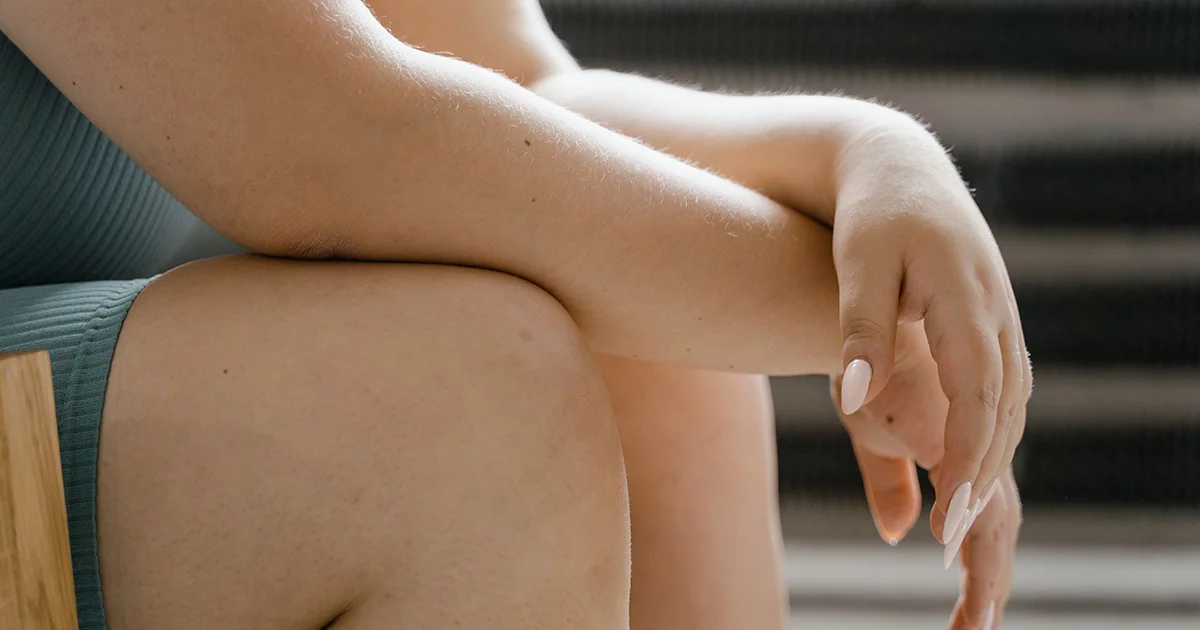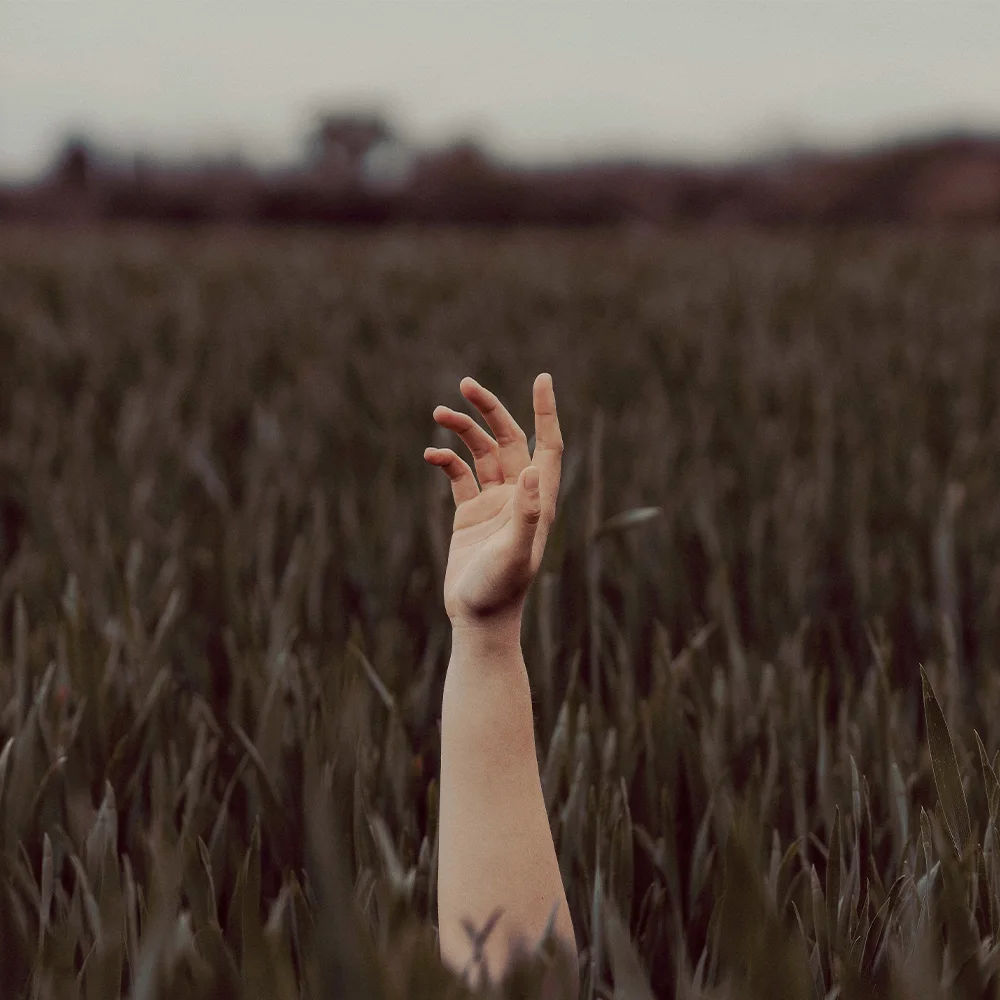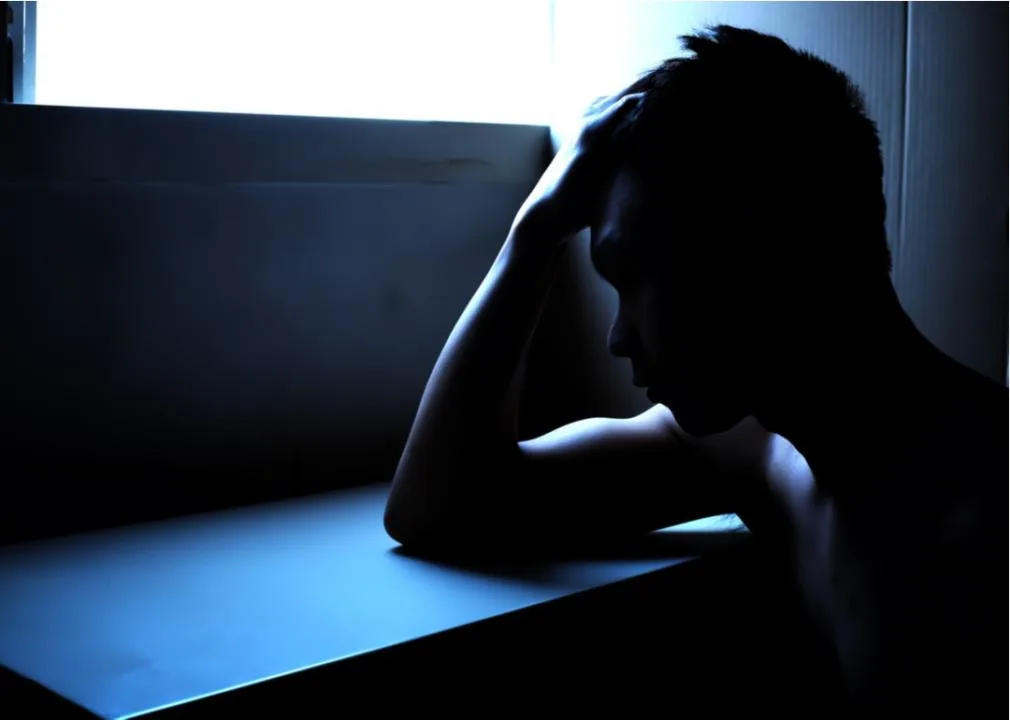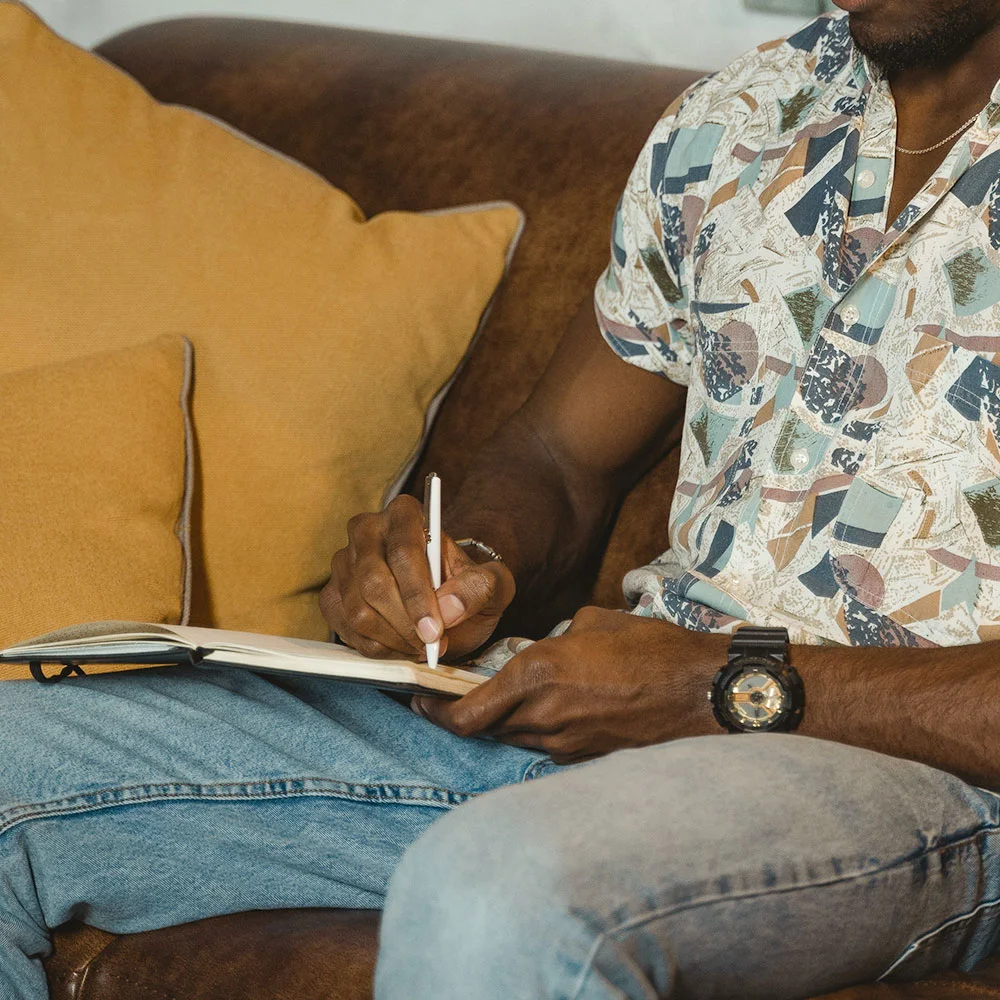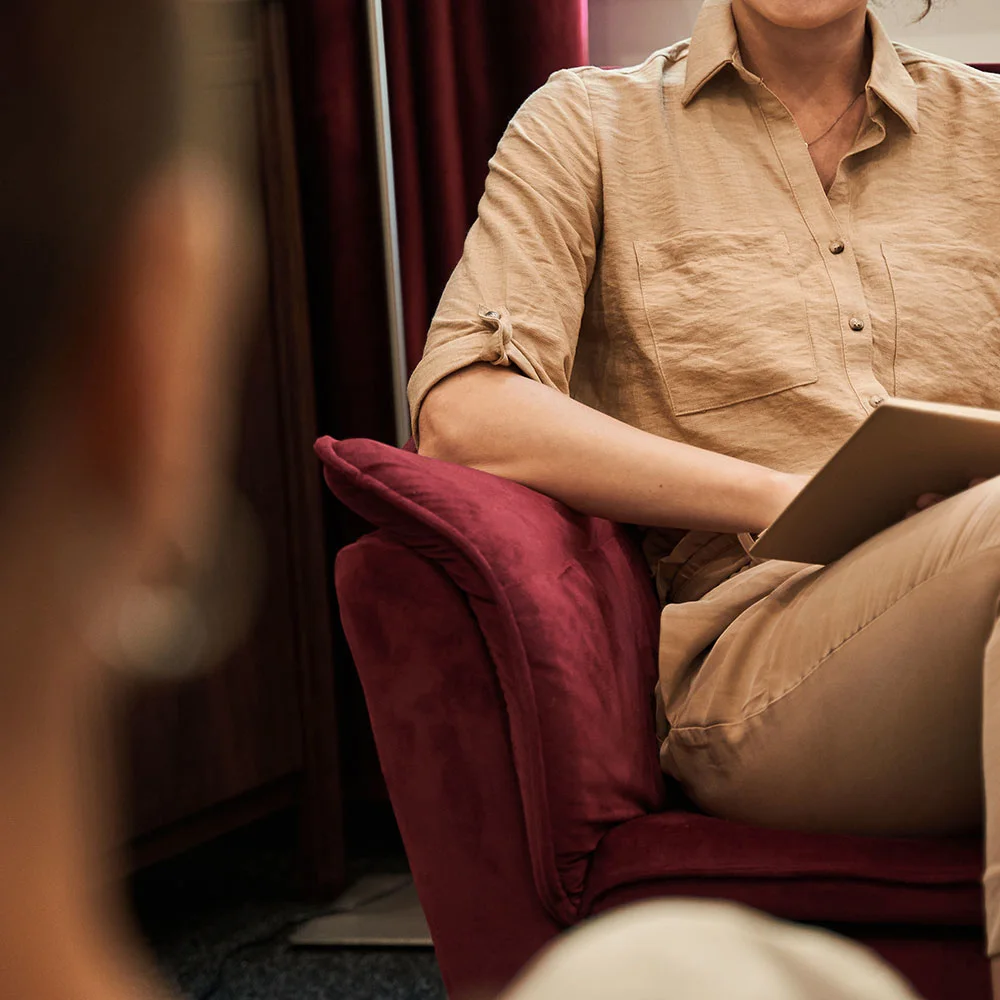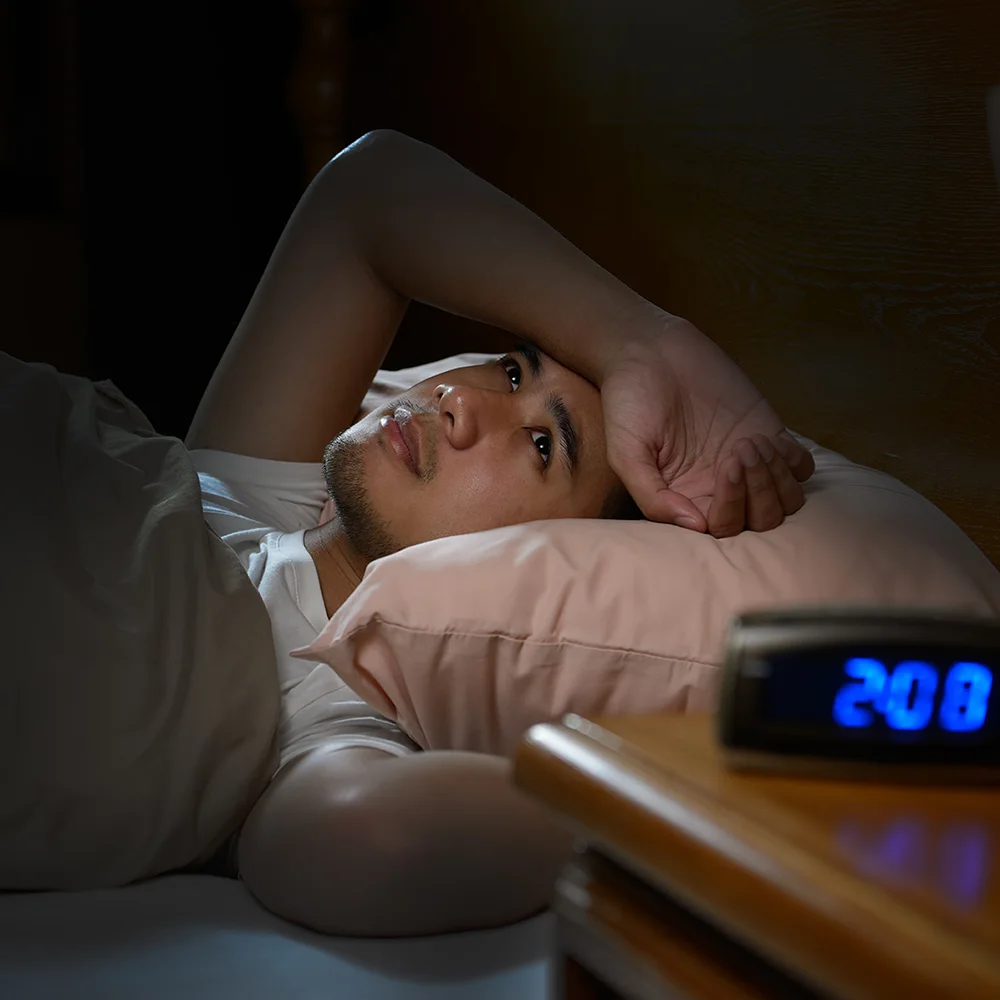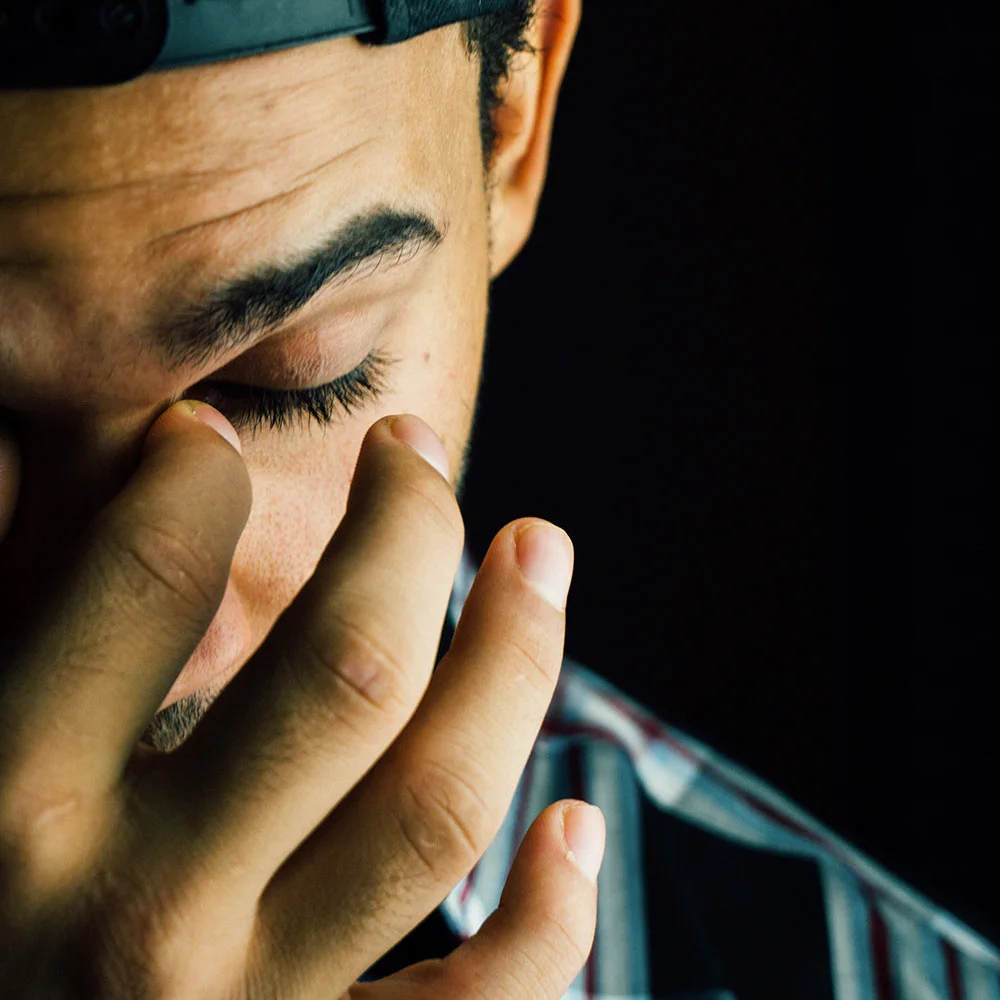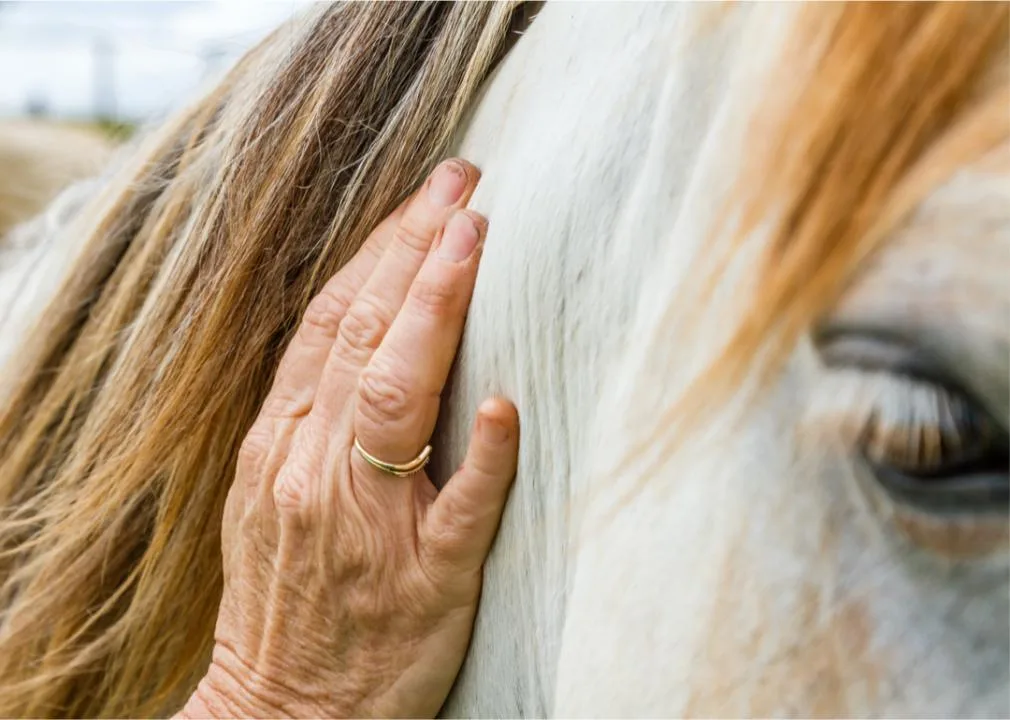Here's what we'll cover
Here's what we'll cover
Anxiety and stress are whole-body experiences that often cause muscle tension, a racing heart, shortness of breath, and other physical symptoms.
These physical symptoms crop up because stress and anxiety trigger the release of hormones that fire up your body’s fight-or-flight systems. In other words, these emotions signal to your body that you’re under threat. Your body responds as though it will either have to flee from or fight that threat (Kemeny, 2003).
Many relaxation techniques can help take away or calm this stress response. Deep breathing exercises are one of them. There’s evidence that breathing techniques may be among the most effective ways to reduce anxiety, stress, and all the unpleasant symptoms that go along with them.
The benefits of breathing exercises
There are many. Think of a scenario that causes people stress, and there’s probably a study that shows breathing techniques can help lower stress in that situation.
For example, research has found that breathing exercises can reduce the stress that many people feel while driving (Balters, 2020) or just before a surgical operation (Rodrigues, 2021). They can also help people calm down while speaking in public (Kimani, 2021).
Deep breathing can help reduce job-related emotional exhaustion and other symptoms of “burnout” (Salyers, 2011). There’s even some evidence that breathing techniques can enhance reading comprehension (Clinton, 2018).
Drilling down on anxiety, research among people with anxiety disorders suggests breathing exercises may be an effective “first-line” therapy for those conditions. Breathing coupled with other practices, such as meditation, may be even more effective than anti-anxiety drugs (Jerath, 2015).
Stress and anxiety benefits aside, breathing exercises are an established therapy for some lung diseases and related medical conditions. For example, breathing exercises can help people with asthma (Prem, 2013) or COPD (Lu, 2020). Some experts have also recommended breathing exercises as an effective way to help people recover from COVID-19 (Lien, n.d.).
Breathing techniques may also help lower your heart rate and blood pressure and improve several other markers of heart health (Ma, 2017). More work has found that they can help reduce pain and prevent insomnia (Jerath, 2019). The list goes on and on.
How breathing exercises work
Think of breathing exercises as a backdoor into your nervous system—and specifically the sympathetic arm of your nervous system. This is the fight-or-flight system that ramps up when you’re stressed.
As sympathetic nervous system (SNS) activity goes up, so does your heart rate, blood pressure, breathing rate, and many other physical symptoms linked to anxiety and stress.
But unlike those other internal reactions to stress, you can control your breathing. By taking control of your breath—by deepening it and slowing it down, for example—you can calm your SNS activity and at the same time activate other systems that come online when you’re feeling calm and relaxed (Jerath, 2019).
These shifts seem to counteract the emotional, cognitive, hormonal, and physical symptoms of anxiety and stress (Jerath, 2019). Meanwhile, breathing exercises also seem to strengthen and train the lungs, explaining the benefits for people with lung-related medical conditions (Leelarungrayub, 2018).
Five beneficial breathing exercises and how to do them
There are a surprising number of different breathing techniques for anxiety and stress. It’s hard to say which is best; there aren’t good studies comparing them, and many are pretty similar.
Here are five that have good evidence backing their anti-stress or anti-anxiety benefits.
1. Diaphragmatic breathing
Your diaphragm is a muscle that sits below your lungs. It expands and contracts as you breathe in and out.
Diaphragmatic breathing—also known as belly breathing or abdominal breathing—involves deep breathing that contracts your diaphragm and forces out your belly (Ma, 2017).
To do it, follow these steps (Chitkara, 2006):
Sit or lay down in a comfortable position.
Put one hand on your upper chest and one hand on your stomach just below your rib cage.
Take a slow, deep breath—inhaling as much as you can—and try to keep your chest still. Instead, your belly should push outward as you breathe in. This is a sign that your diaphragm is contracting.
Hold the breath for a second or two, and then breathe out slowly and completely.
Try to force all the air out of your lungs before you begin again. It might help to imagine that you’re blowing up and deflating a balloon in your belly.
Research has found that people who did this for 15 minutes, every other day, improved their mood and reduced their levels of major stress hormones (Ma, 2017). More research found that taking at least ten consecutive diaphragmatic breaths, twice a day for two weeks, led to significant reductions in anxiety (Chen, 2017).
Slow diaphragmatic breathing is a relaxation skill often used in cognitive behavioral therapy (CBT), one of the gold standard therapies for anxiety. Therapists encourage their clients to use this strategy when facing anxiety-provoking situations (Alvarez, 2021).
2. Box breathing
Box breathing may be beneficial for relaxation as well. It involves four simple steps (Norelli, 2020):
Inhale through your nose, slowly and gradually, for four seconds
Hold that breath in for four seconds
Breathe out for four seconds
Pause for four seconds before starting over
As you work through these steps, it may help to visualize a box with four equal sides. One of the benefits of box breathing is that you can do it anywhere and in any position. Doing it before, during, or after a stressful event should help you relax (Norelli, 2020).
3. Six breaths per minute training
This simple breathing technique is precisely what it sounds like. Your goal is to take slow, controlled, even breaths at a rate of six per minute. That works out to one full breath, in and out, every ten seconds.
Research has found that doing this for just ten minutes can improve several measures of heart-rate variability (HRV). Mood and mental health disorders impact HRV. Targeting it with breathing exercises may help people with panic disorder and other stress- or anxiety-related conditions (Steffen, 2021).
4. Alternate-nostril breathing
Alternate-nostril breathing (ANB) is a form of Pranayama, or what many refer to as “yoga breathing.” There’s some solid evidence linking it to heart and nervous system benefits and improvements in cognitive functioning and stress reduction (Ghiya, 2017).
To do it, follow these steps (Sinha, 2013):
Sit in a comfortable, quiet place and bring your right hand up to your face.
Curl down your index and middle fingers while keeping your other fingers extended.
Inhale slowly and deeply and then, using your thumb, close your right nostril.
Exhale slowly through your left nostril, without any force or effort.
Before breathing in, open your right nostril and use your ring finger to close your left nostril.
Inhale slowly and deeply through your right nostril.
Repeat this two more times, inhaling and exhaling through opposite nostrils.
Reverse the order for your next three breaths—opening and closing the opposite nostrils.
Research has found that just five minutes of ANB can lead to anti-stress and relaxation benefits (Sinha, 2013).
5. Lip breathing
Lip breathing is a straightforward breathing practice, but there’s evidence that it has several benefits. These include relaxation, relief of shortness of breath, and an improvement in the body’s oxygen and carbon dioxide exchange.
To do it, pucker or purse your lips slightly as though you were going to blow out birthday candles. Using a slow, controlled action, take a relaxing breath in through your nose and then blow it out through your mouth. Do this for just three to five breaths (Nguyen, 2020).
Breathing exercises can be helpful on their own. But they’re also a core component of many helpful, evidence-based therapies and practices.
For example, breathing techniques are often incorporated with yoga, meditation, tai chi, qigong, and other forms of complementary medicine (Waechter, 2015). They’re also common in mindfulness-based therapeutic practices (Kim, 2013).
The research to date is a little muddy regarding the most effective breathing technique to combat stress and anxiety. But it seems clear that, whichever you choose, making breathing exercises a part of your daily wellness routine can help your brain and body in several ways.
DISCLAIMER
If you have any medical questions or concerns, please talk to your healthcare provider. The articles on Health Guide are underpinned by peer-reviewed research and information drawn from medical societies and governmental agencies. However, they are not a substitute for professional medical advice, diagnosis, or treatment.
Alvarez, E. et al. (2021). Psychotherapy for anxiety disorders in children and adolescents. UpToDate . Retrieved from https://www.uptodate.com/contents/psychotherapy-for-anxiety-disorders-in-children-and-adolescents
Balters, S., Mauriello, M., Park, S., Landay, J., & Paredes, P. (2020). Calm commute: guided slow breathing for daily stress management in drivers. Proceedings of the ACM on Interactive, Mobile, Wearable and Ubiquitous Technologies; 4 (1), 1-19. doi: 10.1145/3380998. Retrieved from https://dl.acm.org/doi/abs/10.1145/3380998
Chen, Y. F., Huang, X. Y., Chien, C. H., & Cheng, J. F. (2017). The effectiveness of diaphragmatic breathing relaxation training for reducing anxiety. Perspectives in Psychiatric Care, 53 (4), 329–336. doi 10.1111/ppc.12184. Retrieved from https://onlinelibrary.wiley.com/doi/abs/10.1111/ppc.12184
Chitkara, D. K., Van Tilburg, M., Whitehead, W. E., & Talley, N. J. (2006). Teaching diaphragmatic breathing for rumination syndrome. The American Journal of Gastroenterology, 101 (11), 2449–2452. doi: 10.1111/j.1572-0241.2006.00801.x. Retrieved from https://journals.lww.com/ajg/Citation/2006/11000/Teaching_Diaphragmatic_Breathing_for_Rumination.1.aspx
Clinton, V., Swenseth, M. & Carlson, S.E. (2018). Do mindful breathing exercises benefit reading comprehension? A brief report. Journal of Cognitive Enhancement 2 , 305–310. doi: 10.1007/s41465-018-0067-2. Retrieved from https://link.springer.com/article/10.1007/s41465-018-0067-2
Ghiya S. (2017). Alternate nostril breathing: a systematic review of clinical trials. International Journal of Research in Medical Sciences; 5 :3273-86. doi: 10.18203/2320-6012.ijrms20173523. Retrieved from https://www.researchgate.net/profile/Shreya-Ghiya/publication/318714316_Alternate_nostril_breathing_a_systematic_review_of_clinical_trials/links/59822e540f7e9b9ebaab15be/Alternate-nostril-breathing-a-systematic-review-of-clinical-trials.pdf
Jerath, R., Beveridge, C., & Barnes, V. A. (2019). Self-regulation of breathing as an adjunctive treatment of insomnia. Frontiers in Psychiatry, 9,
doi: 10.3389/fpsyt.2018.00780. Retrieved from https://www.frontiersin.org/articles/10.3389/fpsyt.2018.00780/full
Jerath, R., Crawford, M. W., Barnes, V. A., & Harden, K. (2015). Self-regulation of breathing as a primary treatment for anxiety. Applied Psychophysiology and Biofeedback, 40 (2), 107–115. doi: 10.1007/s10484-015-9279-8. Retrieved from https://philarchive.org/archive/RAVSOB
Kemeny, M. E. (2003). The psychobiology of stress. Current Directions in Psychological Science, 12 (4), 124–129. doi: 10.1111/1467-8721.01246. Retrieved from https://journals.sagepub.com/doi/abs/10.1111/1467-8721.01246
Kim, S. H., Schneider, S. M., Bevans, M., Kravitz, L., Mermier, C., Qualls, C., & Burge, M. R. (2013). PTSD symptom reduction with mindfulness-based stretching and deep breathing exercise: randomized controlled clinical trial of efficacy. The Journal of Clinical Endocrinology and Metabolism, 98( 7), 2984–2992. doi: 10.1210/jc.2012-3742. Retrieved from https://academic.oup.com/jcem/article/98/7/2984/2537196?login=true
Kimani, E., Shamekhi, A., & Bickmore, T. (2021). Just breathe: Towards real-time intervention for public speaking anxiety. Smart Health.19 . doi: 10.1016/j.smhl.2020.100146. Retrieved from https://www.sciencedirect.com/science/article/pii/S2352648320300386
Leelarungrayub, J., Puntumetakul, R., Sriboonreung, T., Pothasak, Y., & Klaphajone, J. (2018). Preliminary study: comparative effects of lung volume therapy between slow and fast deep-breathing techniques on pulmonary function, respiratory muscle strength, oxidative stress, cytokines, 6-minute walking distance, and quality of life in persons with COPD. International Journal of Chronic Obstructive Pulmonary Disease , 13 , 3909–3921. doi: 10.2147/COPD.S181428. Retrieved from https://www.ncbi.nlm.nih.gov/pmc/articles/PMC6287646/
Lien, P. Johns Hopkins Medicine (JHM) (n.d.). Coronavirus recovery: breathing exercises. Retrieved June 9, 2021 from https://www.hopkinsmedicine.org/health/conditions-and-diseases/coronavirus/coronavirus-recovery-breathing-exercises
Lu, Y., Li, P., Li, N., Wang, Z., Li, J., Liu, X., & Wu, W. (2020). Effects of home-based breathing exercises in subjects with COPD. Respiratory Care , 65 (3), 377–387. doi: 10.4187/respcare.07121. Retrieved from https://rc.rcjournal.com/content/65/3/377.short
Ma, X., Yue, Z. Q., Gong, Z. Q., Zhang, H., Duan, N. Y., Shi, Y. T., et al. (2017). The effect of diaphragmatic breathing on attention, negative affect and stress in healthy adults. Frontiers in Psychology, 8,
doi: 10.3389/fpsyg.2017.00874. Retrieved from https://www.frontiersin.org/articles/10.3389/fpsyg.2017.00874/full#B58
Nguyen, J. D., & Duong, H. (2020). Pursed-lip breathing. In StatPearls . Retrieved from https://www.ncbi.nlm.nih.gov/books/NBK545289/
Norelli , S. K., Long, A., & Krepps, J. M. (2020). Relaxation techniques. In StatPearls . Retrieved from https://www.ncbi.nlm.nih.gov/books/NBK513238/
Prem, V., Sahoo, R. C., & Adhikari, P. (2013). Effect of diaphragmatic breathing exercise on quality of life in subjects with asthma: A systematic review. Physiotherapy Theory and Practice, 29(4), 271–277. doi: 10.3109/09593985.2012.731626. Retrieved from https://www.tandfonline.com/doi/abs/10.3109/09593985.2012.731626
Rodrigues, S. N., Henriques, H. R., & Henriques, M. A. (2021). Effectiveness of preoperative breathing exercise interventions in patients undergoing cardiac surgery: A systematic review. Revista Portuguesa de Cardiologia, 40 (3), 229–244. doi: 10.1016/j.repc.2020.08.013. Retrieved from https://www.sciencedirect.com/science/article/pii/S2174204921000763
Salyers, M. P., Hudson, C., Morse, G., Rollins, A. L., Monroe-DeVita, M., Wilson, C., & Freeland, L. (2011). BREATHE: a pilot study of a one-day retreat to reduce burnout among mental health professionals. Psychiatric Services (Washington, D.C.), 62 (2), 214–217. doi:10.1176/ps.62.2.pss6202_0214. Retrieved from https://ps.psychiatryonline.org/doi/full/10.1176/ps.62.2.pss6202_0214
Sinha, A. N., Deepak, D., & Gusain, V. S. (2013). Assessment of the effects of pranayama/alternate nostril breathing on the parasympathetic nervous system in young adults. Journal of Clinical and Diagnostic Research : JCDR , 7 (5), 821–823. doi: 10.7860/JCDR/2013/4750.2948. Retrieved from https://www.ncbi.nlm.nih.gov/pmc/articles/PMC3681046/
Steffen, P. R., Bartlett, D., Channell, R. M., Jackman, K., Cressman, M., Bills, J., & Pescatello, M. (2021). Integrating breathing techniques into psychotherapy to improve HRV: Which approach is best?. Frontiers in Psychology , 12 , 624254. doi: 10.3389/fpsyg.2021.624254. Retrieved from https://www.frontiersin.org/articles/10.3389/fpsyg.2021.624254/full
Waechter, R.L., Wekerle, C. (2015). Promoting resilience among maltreated youth using meditation, yoga, tai chi and Qigong: A scoping review of the literature. Child & Adolescent Social Work Journal 32 , 17–31. doi: 10.1007/s10560-014-0356-2. Retrieved from https://link.springer.com/article/10.1007/s10560-014-0356-2

